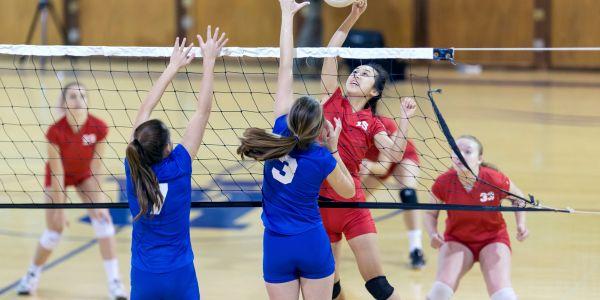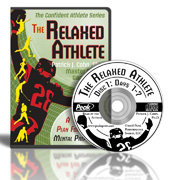
Is there anything more challenging for athletes than training or practicing when you don’t want to?
Many athletes complain about going to practice, especially if the training session is monotonous, dull, or consists of seemingly useless drills.
For example, some soccer players despise long training sessions in the rain. When you are soaked and cold by the midway point, who wouldn’t want to go home, dry off and fall asleep?
Some basketball players complain about conditioning for hours upon hours. They think, “Games aren’t even this long. What’s the purpose of this torture?”
Many slumping baseball and softball players dread going to practice because they feel no amount of practice will help them break out of their rut.
Practices can be miserable when you attach no significance to the training session.
The practice-is-miserable mindset has several drawbacks. This negative mindset:
- Holds you back from your athletic potential – How will you maximize your potential if you back off every time you don’t feel motivated?
- Creates a bad habit – Peak performance is the product of our habits. Doing things the right way builds reliable positive habits that help you rise to the occasion when competing under pressure.
- Concedes the edge to your opponent – If your opponent is maximizing their preparation and training while you neglect the same opportunities, you are giving your opponent a sizeable advantage.
However, putting in the mental game and physical work when you are not in the mood can be highly productive.
The reality is that soccer players will play in the rain… Basketball players will tire towards the end of games…
And baseball players will fall into slumps.
With a positive mindset, you will see and seize the opportunities in any training condition or practice circumstance.
A positive, opportunity-awaits mindset:
- Improves preparation – You are ready for anything. Adverse playing conditions, weather, and competition sites won’t determine how well you perform. Since you competed under those conditions in practice, you will feel confident in your abilities to perform under similar conditions.
- Increases mental toughness – Pushing yourself in challenging training sessions grows mental toughness. When you build your mental toughness muscles, you can flex those muscles in competitions and perform at your peak under pressure.
- Gives you a mental edge – When you are willing and motivated to do things that other athletes avoid, you will have rock-steady confidence and know you can overcome any challenge throughout a competition.
Pro peloton cyclist Mareille Meijering is in her second year in the pro peloton after many years of riding as an amateur. Meijering still recalls canceling training sessions in her amateur days due to inclement weather.
MEIJERING: “Cancelling training sessions]can no longer happen. As a professional, you know you will get better from it, so you do it whatever the conditions. You don’t need that little extra push – you just say I’m going to do this right now because it’s going to make me better.”
When you don’t feel like training or don’t want to push during training sessions, think about what’s at stake.
Remind yourself how training will push you further along the path to your goals.
Remind yourself that you achieve more of your potential by taking advantage of the opportunities in front of you.
And remember, when you outwork or out-prepare your opponent, you gain a significant advantage when you compete against them.
When you lack the motivation to go or push yourself in training, write on your equipment or hand one phrase to remind you of your “why” or what you want to accomplish.
The phrase can be a goal time, placing, or ranking you want to achieve. Or you can use motivational keywords such as “mental edge” or “peak performance” to sustain your effort and focus.
Related Sports Psychology Articles
- The Mindset to Perform at a Higher Level
- Having Fun While Performing at Your Best
- The Importance of Mental Toughness
*Subscribe to The Sports Psychology Podcast on iTunes
*Subscribe to The Sports Psychology Podcast on Spotify
Download a free sports psychology report to improve your mental game!
Learn more about our one-on-one mental game coaching.

The Relaxed Athlete
You can possess all the physical talent in the world, the best equipment money can buy, and train harder or longer than anyone else in your sport or on your team, but if self-doubt enters your mind prior to competition, you simply will not realize your true potential in sports.
The Relaxed Athlete” audio and workbook program teaches you mental strategies to develop a focused and confident pregame routine for a poised and relaxed mindset. Learn how to get your mind right by overcoming pregame anxiety and worry.
